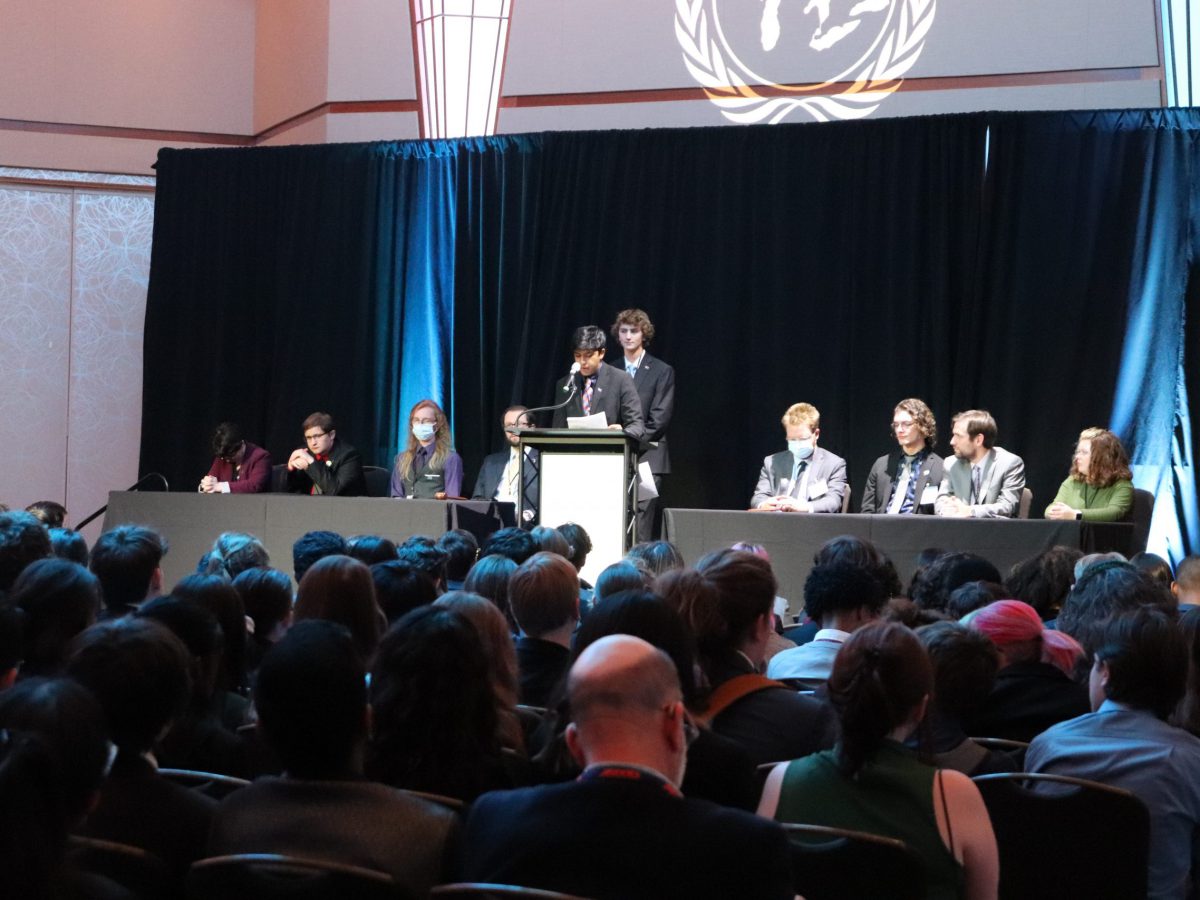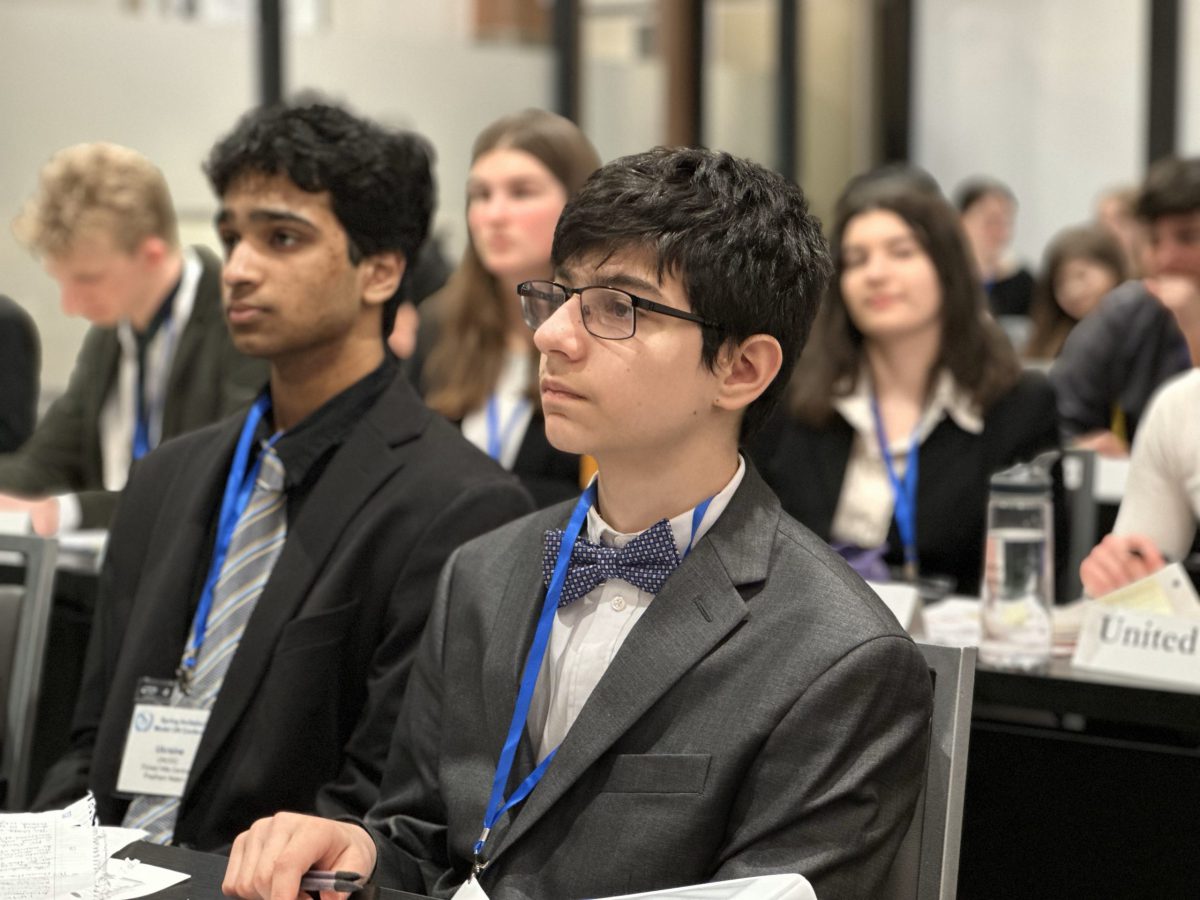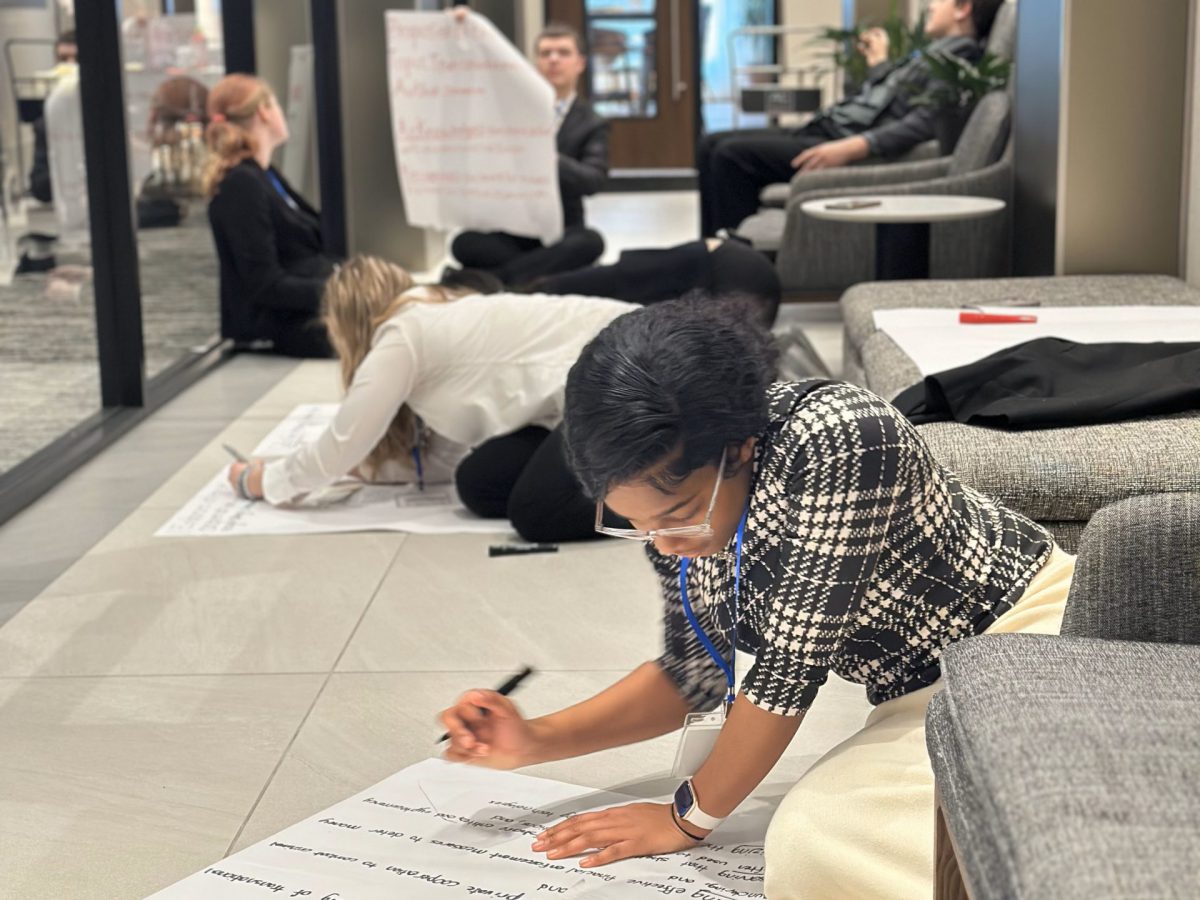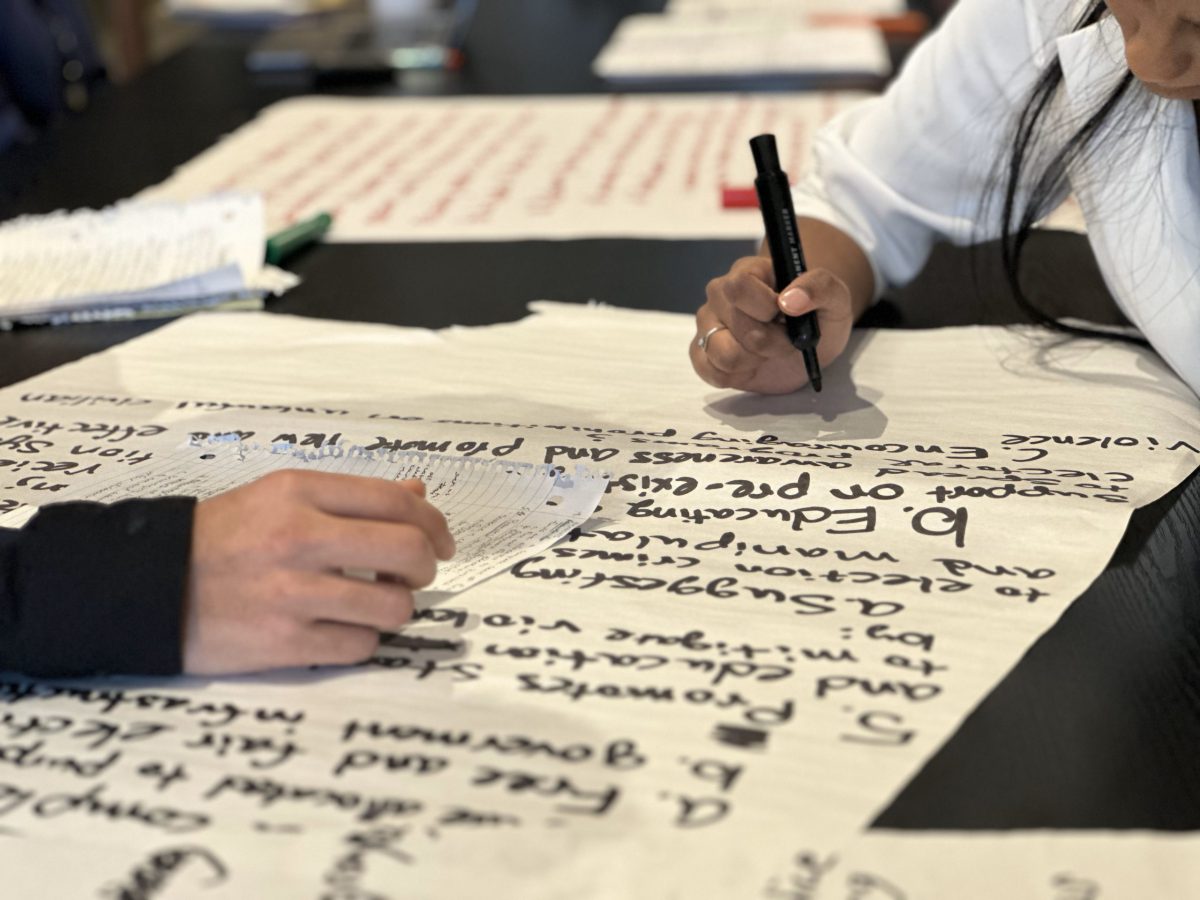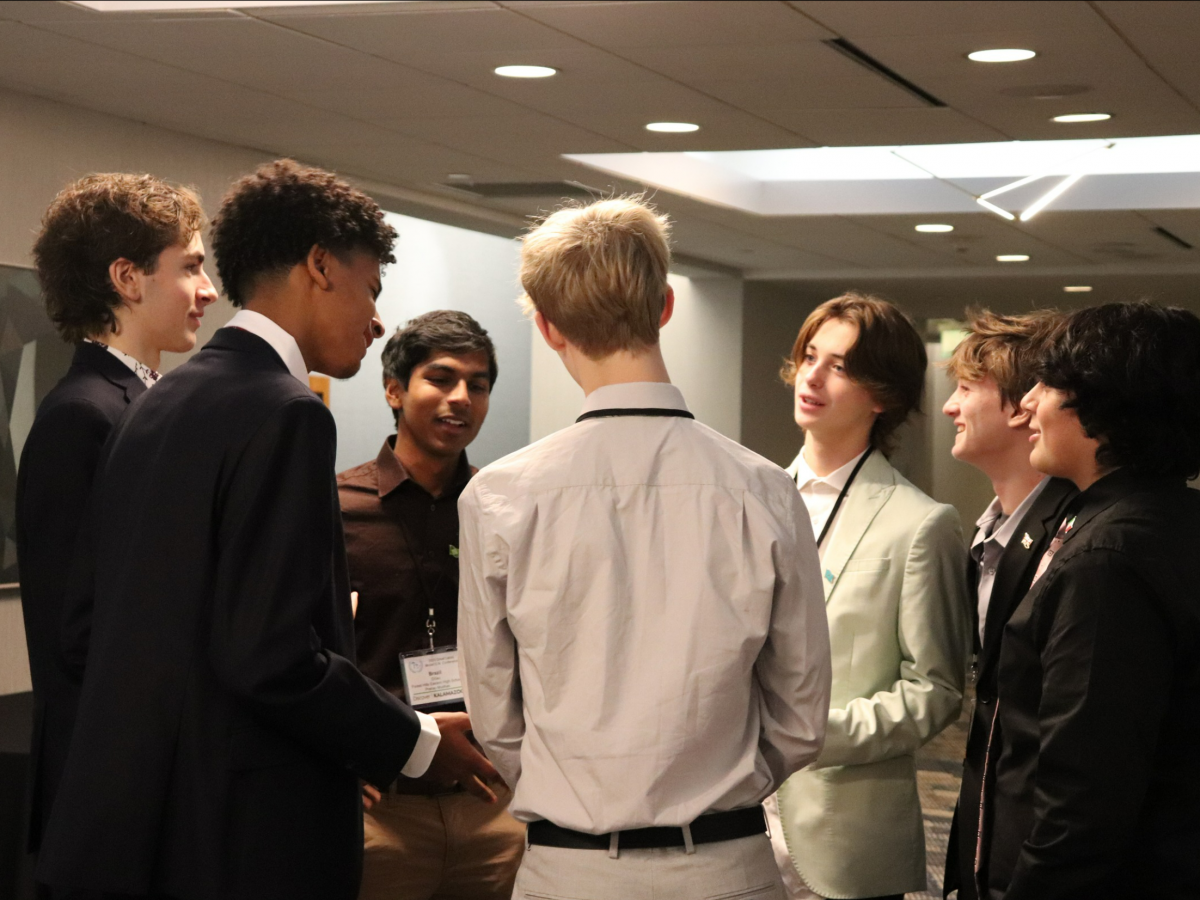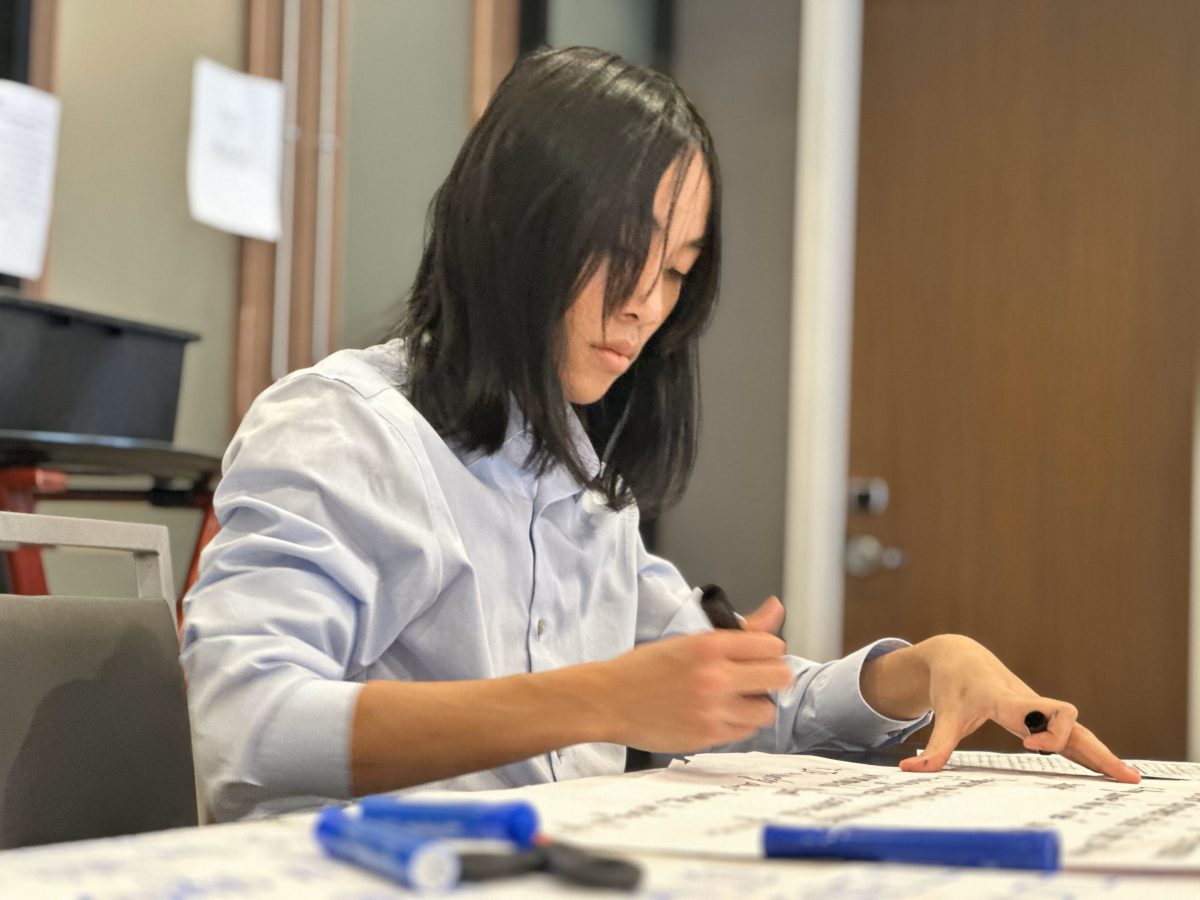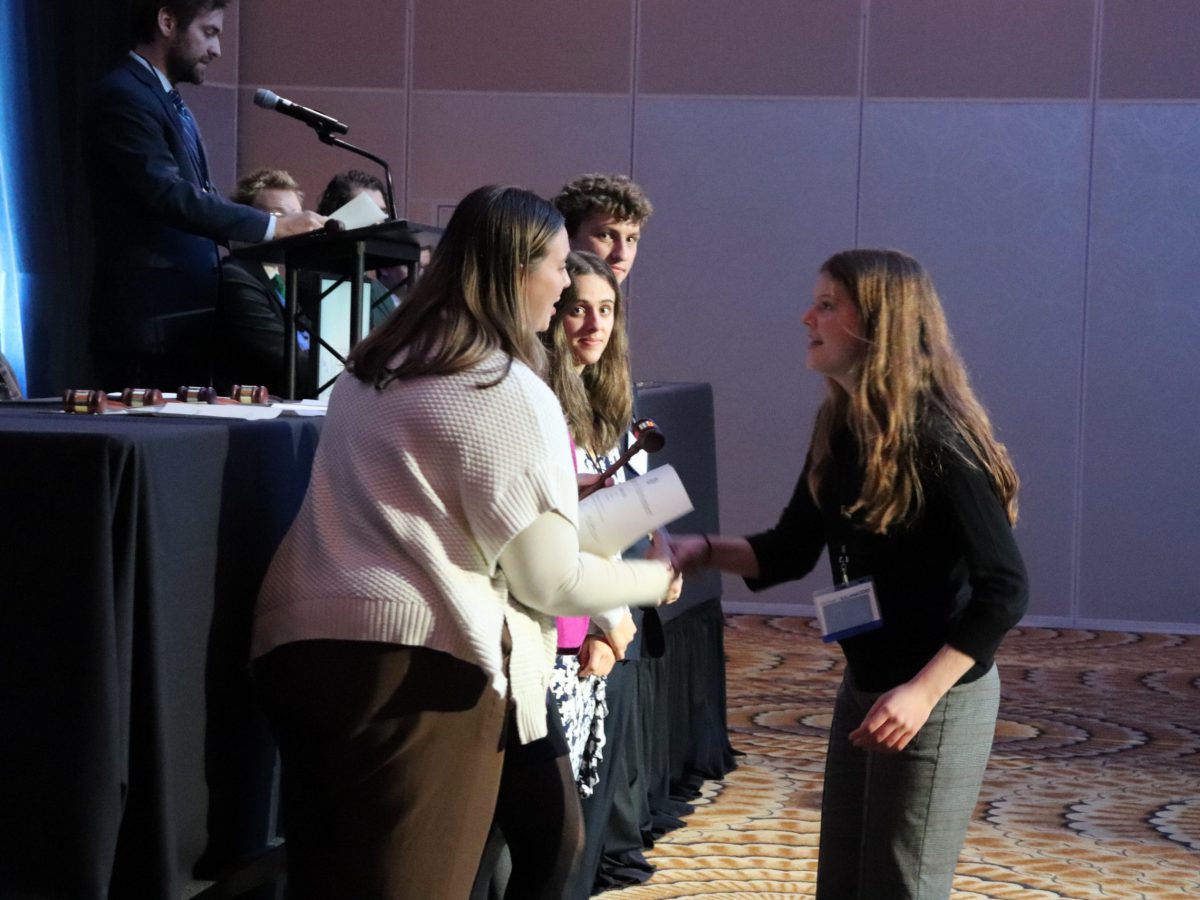About Us
- Home
- »
- About Us
About Us
The Great Lakes Invitational Conference Association is dedicated to putting on conferences to expand global understanding in the minds of today’s youth. Our conferences provide middle and high school students with a chance to experience a unique simulation of diplomacy and compromise in action. Participation calls upon students to confront numerous topics foremost in the international community, and attempt to resolve issues that are far outside their own personal experiences. In addition to learning substantive content regarding the agenda topics, students improve a variety of skills including research, writing, public speaking, consensus building, negotiation, teamwork, and objective critical thinking. We hope that by giving these students hands-on experience in these areas, they can grow to become more mature, responsible leaders for the future.
The Model United Nations experience provides a rare opportunity for school students to engage in high-level synthesis and evaluation of the topics. Students become much more aware of national and international politics and current events. While engaged in the process, they are achieving core objectives in the Social Studies Curriculum, and also improve understanding in the sciences, particularly ecology, and English Language Arts competencies.
Our Approach
One of GLICA’s biggest assets is its large and long-standing volunteer staff. GLICA staff often volunteer for many years beyond their college years, sometimes for several decades. The steady service of the staff members provides continuity to our process, and allows delegates to interact with experienced educators in committee.
At GLICA we use a very delegate-centered approach in our sessions. Our goal is to have students direct the flow of their committee work in the most democratic method possible. Our rules of parliamentary procedure are intended to be a tool for the delegates to use to make decisions about how to proceed on the topics. Some committees opt to use the rules rigorously to enact their policies, other committees elect to consensus build, and use the rules only to take action on working papers. Regardless of the committee, the rules are for the delegates to use, not a tool for the staff to control the flow of the work.
Since we use a delegate-centered approach, committee staff is there to referee the discussion and keep the delegates engaged and working. Our committee staff is quite experienced, the average chairperson having staffed committees for three or four years before leading a committee. Chairpersons and Legal Counsels not only usher the committee procedurally, they assist delegates in revising working papers to improve their writing skills. Chairpersons and Rapporteurs also are shepherds of the topics, guiding the delegates to explore the various facets of the issues, and engage in deeper discourse.
Testimonials
“We have been competing at Model UN conferences for over 25 years, and of all of the events we’ve traveled to — including the University of Chicago, University of Michigan, and Michigan State University conferences — GLIMUN stands out as being not only the most challenging event of the year but also the most rewarding. Conference staff have high expectations for our students and that translates into much higher quality debate among delegates in all committees. Perhaps the most dynamic feature of GLIMUN is the GA and ECOSOC plenary sessions that are held during the last two days of the conference. In this setting, success becomes less about an individual’s skill or charisma and more about a team presenting a uniform, consistent message on every topic, building coalitions and working with them to arrive at solutions that reflect a global consensus and a commitment toward the greater good.
A number of my former MUN students have gone on to actually pursue careers in the foreign service as a result of the passion that GLICA helped instill within them, and for this reason I will always be very, very grateful.”
— Chris McClees, Retired MUN Program Advisor at Forest Hills Central High School
“My students and I have been attending GLIMUN for over 10 years. We choose to attend every year because the conference offers many great opportunities for my students to improve on their MUN skills. The staff are extremely helpful and knowledgeable.
Another reason why we attend GLIMUN on a regular part of our calendar is because they prepare our students for greater success in the other conferences we attend throughout the Midwest. They have become an integral part of our program and the success of our students at Kalamazoo Central High School.”
— Clifton FraleyBurgett, MUN Program Advisor at Kalamazoo Central High School
“The really cool thing is seeing the kids see a sense of hope to pass resolutions and solve problems. The kids have the perspective that not everyone will agree. It’s what makes problems complex.”
“I am enjoying seeing my students in a new light. It’s fun to see them excel at something new and different. I also like talking to other teachers. I really enjoy these conferences.”
“I enjoy the community. You guys are great. I like the questions that the kids are bringing, that they’re being challenged, and have to work as if in an era 20 years ago, before social media.”
“I thought the topics were really good. The organization went really well. It was super easy as an advisor to get to where I needed to be. The approach they use in committee is good. The students are participating and being involved.”
“The big reason I come back is that I like to see my kids outside their comfort zone. You may not shine as much at school, but you can shine a bit more here depending on the effort you put in.”
— MUN Program Advisors at SIMUN 2025

